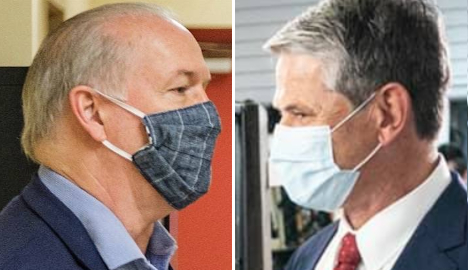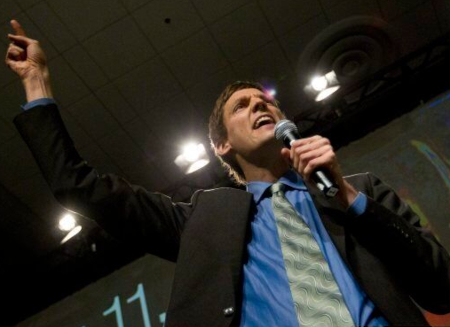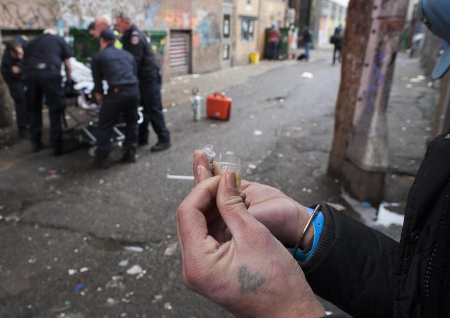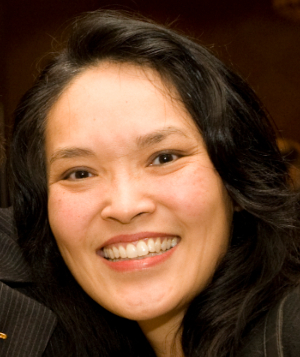
Reflections on Vancouver, British Columbia and other topics, related or not
Thanks to
B.C. politicians
The 2020 provincial election
made this world a better place
Greg Klein | October 4, 2020
“B.C. poverty pimps dragged the SJW spoils system
down to a level that disgusted even us,” said a joint
statement from John Horgan and Andrew Wilkinson.
Predictions were plentiful as British Columbia entered its fall 2020 election campaign. But absolutely no one foresaw an outcome such as this. An astonishing turn of events rescued entire communities, stemmed the waste of many lives, disbanded an exploitative industry and, not to put too fine a point on it, restored faith in human nature. So much good work, so many positive results—and it was all due to B.C. politicians.
It started, believe it or not, with the BC Liberals. Directionless and with little pretence otherwise since Gordon Campbell abandoned his claim to represent working people and the middle class, the party passed its time in office as a business-as-usual government. Business as usual meant the real estate crisis, the money laundering crisis, the drug addict crisis and Christy Clark’s photo opps. Even on losing the 2017 election, the party had no other strategy than to wait for the New Democrats to once again screw up so enormously that a weary populace would re-transfer the perks of power.
But as homeless camps multiplied and expanded all over southwestern B.C. and farther inland, more and more communities came under siege by the accompanying crime waves. Theft, break-ins, harassment, bizarre behaviour and random violence challenged the security of once-sedate neighbourhoods, family homes and even Liberal complacency. No longer could the party ignore this problem.
Quietly, covertly, Liberals studied the situation. In doing so, they introduced two radically new qualities to B.C. politics: common sense and three-digit IQs.
They found a phenomena obscured by a minority of people with untreated mental illness but dominated by a majority who reflect social breakdown. A growing subculture, largely characterized by drug use, aggression and criminality, reflected an increasingly self-indulgent and narcissistic population.
Blocking any solutions, however, was the prevailing argument that mental illness explained the entire phenomena. Another key tenet insisted that addicts couldn’t be held responsible for their actions, let alone their lifestyle. At least as problematic were the courts, which continually granted leniency to people with as many as 70 or more convictions for B&E, theft and assault. The only solution, according to those granted a say in the matter, was free homes for all, along with unearned income and government-expanding services.
Like the Americans and Brits who flocked to this province,
David Eby came here from afar for poverty pimp opportunities.
B.C.’s Ontarian attorney general demonstrated the interplay between
pimps and politicians by starting his career with the Pivot Legal Society.
The Liberals realized there’d never be enough money to provide all that to a rapidly expanding underclass pouring in from across Canada and the world. The Liberals also recognized that the mentally ill minority would never get treatment if such impossible spending became the prerequisite. Moreover none of the supposed homeless advocates, in any of their wildest funding demands, backed any credible plan to treat the mentally ill.
Just as the Liberals reached this level of understanding, came another revelation: Voters already knew this.
Although sometimes inchoate and awkwardly expressed, common sense prevailed outside B.C.’s political class. Fed up not only with crime, the public rejected conventionally straitened, frequently asinine, mainstream commentary.
With the NDP’s shaky government ready to fall at any time, the Liberals put together a new two-pillar platform: treatment for the mentally ill and accountability for criminals. Not easily achieved, but not impossible either. Yet the greatest barrier would be a firmly entrenched advocacy industry.
The advocates were just that—advocates for homelessness, drug addiction and untreated mental illness. Their proposals, often stated as demands, perpetuated the problems. The advocates profited.
B.C.’s culture of flakery and corruption attracted sociopaths
from around the world who gained fun and profit by encouraging
drug addiction and blocking treatment for the mentally ill.
More Liberal research confirmed what many had suspected. Money given to the advocacy groups mostly went into inflated salaries, expense accounts and sometimes outrageous personal extravagance.
Such was B.C.’s poverty pimp industry. The pimps demanded money to fix the problems, then perpetuated and manipulated the misery to demand more money in a ruse so obvious that only B.C.’s media could miss it.
But challenging such powerful interests called for a careful strategy, especially since the pimps enjoyed a near-monopoly on public discourse. Just as the Liberals ruminated over that, however, came the NDP’s election call and an astounding campaign strategy.
The NDP turned against the poverty pimp industry.
That anyone in B.C. would do so was shocking enough. But the NDP? Who would have expected that from the party of social engineers, big-government expansionists and public sector unions, not to mention ideologues who hate normality?
Some attributed the reversal to the junkie crime wave. Spreading well beyond communities that don’t matter, it eventually hit neighbourhoods affluent enough to host MLAs. That was a contributing factor, NDP insiders later acknowledged. But an even stronger impetus developed.
“Finally, finally, finally,” leader John Horgan recalled. “Finally those fucking poverty pimps pissed us right the fuck off.”
Suddenly facing poverty themselves, once-privileged ex-pat pimps pleaded for
repatriation to the U.S. and UK. B.C.’s poverty pimp industrial complex collapsed
with the lack of taxpayers’ funding for the PHS Society, Cool Aid Society, Our Place
Society, Island Crisis Care Society, Pivot Legal Society, Vancouver Area Network
of Drug Users and myriad other tax-funded poverty pimp opps.
It wasn’t just their incessant demands, he explained. “It was their sanctimonious preening, their nauseating self-righteousness all the while trafficking in human misery. Have there ever, ever in the history of moral hypocrisy, been such obvious phonies as the infusoria of B.C. poverty pimps?”
Even more disturbing was sudden self-awareness.
“We saw ourselves,” Horgan conceded.
Struggling to retain his composure, he continued: “It was like Dorian Gray in his attic confronting that sneering, grimacing visage, the hideous corruption of his soul. We recognized the degradation of our values. Was this what CCF democratic socialism had come to—clinging to the perks of office while helping tax-funded opportunists destroy lives and communities?”
No longer could the PHS Society pay for
NDP politician Jenny Kwan’s vacations
in the UK, Austria and Disneyland.
That awful realization didn’t exclude the BC Liberals.
“We once prided ourselves on complacency every bit as smug as the NDP,” admitted leader Andrew Wilkinson. “But the poverty pimp epiphany hit us just as hard. We too recognized ourselves as pigs swilling at the public trough.”
They didn’t even wait for election day. Both parties, belatedly joined by two Greens who didn’t really understand anything but always go with the majority, set to work. To the utter destruction of B.C.’s poverty pimp industrial complex, MLAs diverted billions upon billions upon billions of annual funding into mental hospitals.
Judicial leniency ended when new legislation gave judges a choice of locking up repeat offenders or referring them to halfway houses newly built beside the judges’ own homes.
The remaining bums were given an incentive to work or do without stuff that included, well, pretty much everything that normal people have to pay for. Some of the junkies did take jobs and, to greater or lesser extents, reduced their pimp-encouraged dependency. Others worked just long enough to earn bus fare back east or down south.
The world now looked to B.C.’s political class, once a global leader in flakery, as an epitome of common-sense governance. Meanwhile B.C. journalists, deeply ashamed of their poverty pimp complicity, vowed to take remedial courses in logic, critical thinking and basic literacy.
And in other election news, Lieutenant-Governor Janet Austin announced that voting day would be moved to April 1, 2021.




